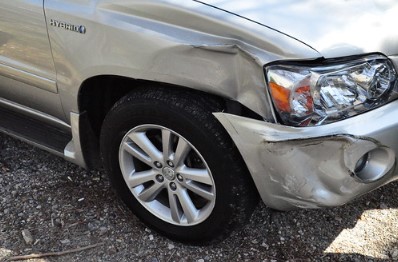The aftermath of a car accident can be incredibly stressful when victims deal with trauma, injuries, and car damage. These factors disrupt your health and normal lifestyle and can impact your financial well-being. As you file an insurance claim, it’s essential to determine who was at fault to receive the compensation you deserve. This guide from American Auto Insurance looks at the parties involved in this crucial decision. Read on to learn more about how the police, insurance companies, and even drivers can play a role in determining fault.
How Drivers Can Determine Fault

Immediately after a car accident, a driver might admit fault in their state of shock or confusion. They might confess they didn’t see a stop sign or simply apologize for the accident, even if it wasn’t their fault. While these statements won’t automatically hold you responsible, it’s best if you don’t communicate with the other parties unless it’s to ask if they’re okay or need anything. An apology or admission of fault might be the evidence an insurance company needs to put the blame on you.
Instead of pointing fingers at yourself or other drivers, consider taking these steps:
- Take pictures of the vehicles.
- Note the make and model of the involved vehicles.
- Note the names and phone numbers of witnesses and involved parties.
- Ask the other drivers to show you their licenses and insurance ID cards.
- Document the location, time of day, and weather conditions.
How the Police Determine Fault
When someone calls 911 to report a car accident, the police respond to the scene. Officers first determine if anyone is hurt and call for medical help. After ensuring everyone is safe, the police then assess the scene by noting damage and evaluating the surroundings to determine what happened. In many cases, the cause of a car accident is obvious. For instance, an officer might note in their police report that a speeding car rear-ended a stopped car at a red light.
However, it’s important to recognize that not all accidents have clear-cut explanations. Many factors can contribute to an accident, and more than one party might be at fault. It’s the police’s job to evaluate the circumstances that caused the accident. For instance, one driver might’ve been using their cell phone or driving under the influence. Officers can paint a clear picture of the accident by collecting evidence, analyzing vehicle damage, and interviewing involved parties and witnesses.
The police will usually use the information they collect to file a car accident report, especially if you live in a state that requires a report if there are injuries or significant damages. If the officer refuses, ask if they can make one for insurance purposes. This public document might contain a determination of fault based on the officer’s professional judgment. However, even if it doesn’t, it can serve as evidence when you file an insurance claim.
How Insurance Companies Determine Fault
While drivers and the police play a role in determining fault, insurance companies are usually responsible for making the final decision. The process begins when you file a claim after being in a car accident. Every claim receives an assigned adjuster to determine who was at fault. These professionals determine fault by researching the accident, interviewing witnesses, and evaluating medical and police reports. They also examine vehicle damage and confirm details about insurance policies to determine the appropriate coverage.
If you live in an at-fault state, the determination of fault allows insurance companies to understand who is responsible for paying the victim’s medical bills and damages. Note that a no-fault state like Illinois requires drivers to have personal injury protection, which helps car accident victims pay for their medical expenses. Though drivers in no-fault states receive medical coverage through their insurance, insurance companies handle property damage claims on an at-fault basis. For instance, if another driver damages your vehicle, their insurance company might help you pay for repairs.
Another thing to know about insurance companies is that they can assign percentages of blame to each party in the accident. This is a relatively common scenario, as more than one party can be responsible for a crash. Here are some insurance terms that can help you understand how much compensation you’re entitled to:
- Comparative negligence: Some states use comparative negligence, meaning victims can obtain compensation based on the other driver’s degree of responsibility. For instance, if the other driver was 60% responsible for the accident, their insurance company may pay up to 60% of your damages.
- Modified comparative negligence: If you live in a state like Illinois that uses modified comparative negligence, you can only receive compensation from the other driver if you were less than 50% at fault. For instance, if you were 60% at fault, you would be fully responsible for your damages.
- Contributory negligence: Also known as pure negligence, contributory negligence means that a driver cannot obtain compensation from the other driver if the insurance company deems them responsible for any part of the accident.
How Courts Determine Fault
Most car accident victims make claims through their insurance companies to avoid the time and expense of a trial. However, some take their cases to court as a last resort. Going to court is especially common if the accident resulted from driver negligence or defective products from an auto manufacturer. Like insurance companies, judges and juries examine evidence ranging from witness statements to medical and police reports. If the judge or jury finds the defendant at fault, they determine the damages the defendant will have to pay to the plaintiff.
This guide has demonstrated that determining fault after a car accident can be complicated. Many parties use evidence to decide how much responsibility each driver has, and the insurance companies ultimately determine payouts. If you want to file a claim or acquire protection in the event of an accident, contact one of our representatives today. American Auto Insurance provides affordable coverage and makes the claims process as simple as possible.


